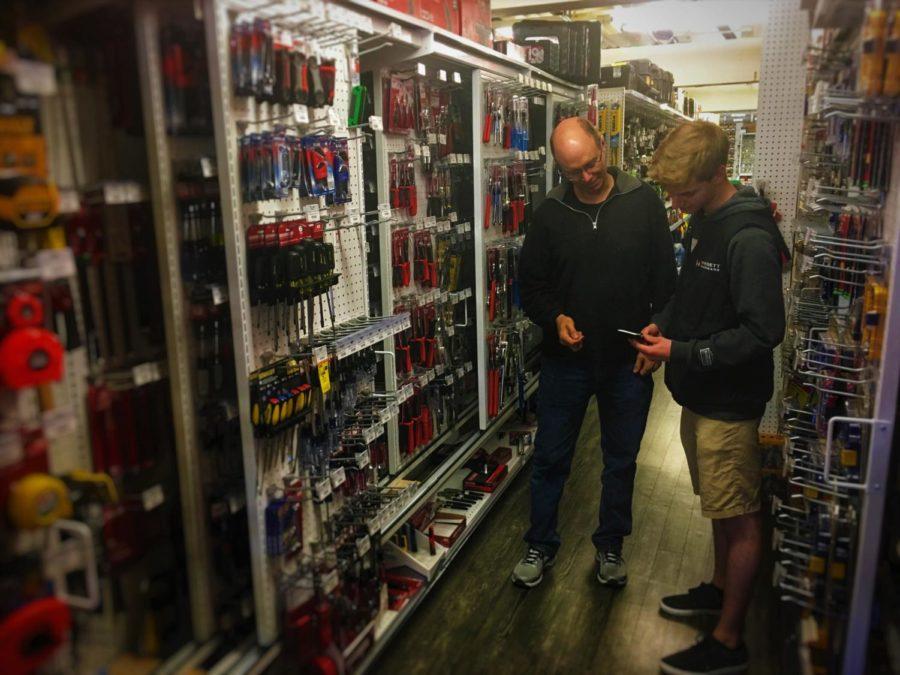A student ends the school day and rushes to work. He leaves work 4 hours later and rushes home, beginning his homework. At 2 a.m., he finally finishes his day.
As stress begins to overwhelm him, his grades slip.
This is the reality for countless high school students around the country, but many students are choosing to forego this reality. As a result, high school employment rates are dropping drastically.
“I worked at Waterdog Tavern over the summer and for the first month of school, but I then quit to focus on academics,” said Trey Chock, a junior. “I quit because the time constraints of having a job, especially during my junior year, were a major obstacle for me. I had to sacrifice time to do homework and study in order to work.”
According to a study by The Washington Times, from the 1900s to 2011, the percentage of high school students with a job has decreased from 32 percent to 16 percent. This drastic reduction is due to the increasing need for students to do well in school because “it has never been harder to get into college — or pay for it,” according to a Miami Herald study.
“I will not be getting a job within the school year because I would be under way too much stress, and I would have no time to rest. It would give me less time to do my work and negatively affect my grades,” said Ben Pasion, a sophomore.
Pasion had a job over the summer as a child caretaker at a volunteer center but chose not to continue his job during the school year.
“I did not continue my job into the school year because jobs take a lot of time and effort,” Pasion said.
Jobs can be very taxing on students, and with schoolwork, the stress can overwhelm students and influence their decision on whether to get a job or not.
Students who do take jobs may face many challenges, and these challenges can make a negative impact on their life. However, jobs, under certain circumstances, can be beneficial to a student as well.
The BYU Employment Services published a study that showed that students who worked under 15 hours a week had little to no negative effects, whereas students that worked over 15 hours a week faced many negative effects, like a decline in their social life, grades, lowering of academic goals, and a lower likelihood of attending college. The study reported that one reason for this is because many students who worked more than 15 hours a week had to work to support their families, making them less focused on schoolwork than students who worked just for personal gain.
The study also showed that some students that worked under 15 hours a week had better grades because of the strong work ethic they developed through their job.
“I knew I would be getting my license soon and I would want a car, so I started working and saving to buy one. It hasn’t been much of a challenge at all because I make sure I get my school work done on time so I do not have to worry about it when I am working,” said John Griesbach, a junior and an ACE Hardware employee. “I just have less time with friends on the weekends.”
While students who work less than 15 hours a week experience some negative effects, like less time with family and friends, many of these students manage to use their time efficiently and have been able to deal with the stress and workload that comes with a job. This makes the job more beneficial than it is harmful to them.
Jobs can be very appealing, especially with the money being a prime incentive. Money is a key motivator for students to take a job, and it convinces the students to accept the stress that may come along with the job.
“For most high school students, I feel that taking a job has to do with earning money for a car or making their resume seem more appealing,” Chock said.
Despite the stress and pressure that they may cause, jobs can provide multiple benefits to students of all ages and stress valuable skills needed later in their lives.
Griesbach said, “The reason I got a job is that it is an easy, consistent way to have an income to get what we want instead of waiting for birthdays or asking parents.”












